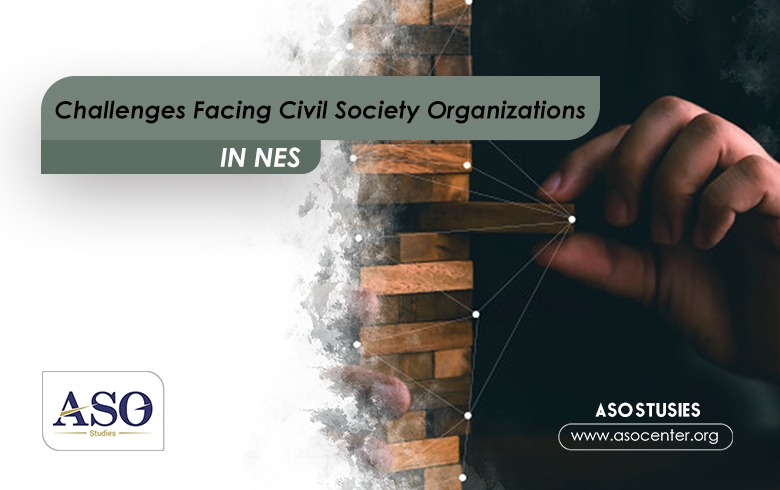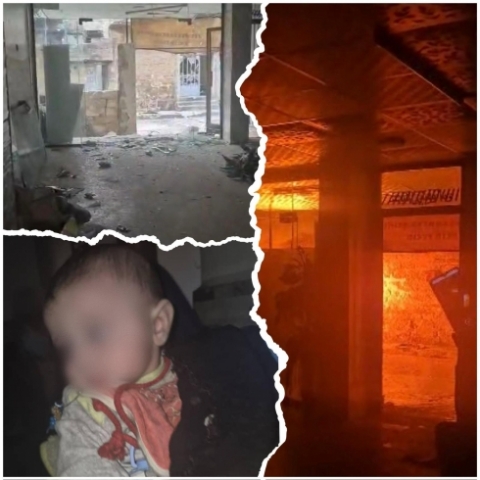

Challenges Facing Civil Society Organizations in NES
2020-07-25
The Syrian government had been the most prominent impediment to the presence of local civil society institutions and organizations in NES. The existing government policy before 2011 was operating to prevent any civil or political activity outside the Syrian government or the Ba’ath Party framework.
The Ba’ath Party intended to demonstrate civil organizations, unions, centers, associations, charitable and humanitarian organizations directly affiliated with it, to monopolize civil work, as was the case in the political and media sectors in Syria.
Youth groups in NES, along with the popular protests launch against the Syrian regime; started forming civil blocs, which were then called "Syrian Revolution Coordination.” Their work was focused on advocacy, organizing protests and demonstrations, as well as providing assistance to those pursued by the security. Thus, they became the basis for forming civil society organizations in the region.
Later, civil work arena became larger as the work of these youth organizations shifted from organizing protests to civil work and civil organizations began to gradually be established, after popular protests in Syria turned into a war in which local Syrian military groups and regional and international countries participated.
Local civic organizations in NES went through difficult and exceptional circumstances, due to their dependence on local cadres who do not have experience and qualifications in civil work. However, with the beginning of international support for organizations, civil work progressed successively, nevertheless internal impediments and challenges continued within the organization itself and externally in the geographical area controlled by the Democratic Self-Administration of NES.
Civil Society in NES:
Before 2011, CBOs presence in Syria, compared to the situation later, was weak due to the security clout and the prohibition of all independent civil work forms. As those willing to engage in civil activity resorted to secret work with limited impact, in lack of funding and discussion conditions, general societal discussion and the concept of civil work was not originally demonstrated in Syria.
However, after 2011 the reality changed along the security regime's power declination and losing large areas control. Consequently, this led to enhancing freedom and work space and a great desire has appeared among various segments of civil work. As well as, donor funding flow; as the number of organizations in Al-Qamishli city only has reached around 80 organizations in 2017.
Since the peaceful movement beginning in 2011, tens of local civic organizations were established and civil work opportunities were more available. They were established with local human resources that do not have sufficient experience and qualifications to manage civil organizations in the region. In addition to, the lack of work sustainability which, has become one of the most fundamental issues facing civil work in NES. This was due to the lack of continuity of funding and lack of its availability for military and security reasons related to the whereabouts of the Syrian intermediary donor organizations.
In the same context, a number of organizations became out of work due to the lack of permanence of funding that affected a number of local civic organizations in NES and the absence of continuous support. This took place after different mechanisms for granting and supporting projects and their geographical areas were adopted and the marginalization of different sectors in civil work. The number of local organizations, once, in Al-Hasaka governorate only, reached more than 250 local organizations in 2018. However, the number decreased gradually, due to the absence of funding and the inability of the organization's employees to pay costs and expenses of offices and work.
The civil society situation in any country and under the sovereignty of any government, reflects the political and social condition of society in issues related to freedoms, rights and democracy foundations. Therefore, any marginalization of the civil society role implies marginalization of these concepts. In addition to the administration responsibility to establish a cooperative relationship with the civil society in order to improve outcomes of the political process from laws, development and other fields. Activists in civil society may also have to find methods to communicate with the Self-Administration to clarify civil work concepts and frameworks of their activities and what they aim in the long run, whether through media or forming groups to create contact mechanisms with the Self-Administration.
It is natural for every organization, under conditions such as Syria's conditions, to rely on financing and technical support from abroad. This is due to the absence of internal financing and the conflict against it and limitation of its capacities by various parties. We can conclude by observing civil society organizations in Al-Qamishli relations with various political parties, whether the Self-Administration or the opposing Kurdish National Council to the Self-Administration, which is affiliated with the National Coalition for Revolution and Opposition Forces in Syria. That the common denominator between them is the lack of confidence and the fear of losing work or preventing activities and opening offices and headquarters. This explains exactly how it is difficult to turn into a democratic country and have an active citizenship in Syria.
Table of Contents:
Introduction:
Civil Society in NES:
Internal Challenges Facing Civil Organization in NES:
External Challenges Facing Civil Organization in NES:
- Legal Challenges:
- Security Challenges:
- Societal Challenges:
- Economic Challenges:
Conclusions and Consequences:
References:
To read the full report, click on download
Download



